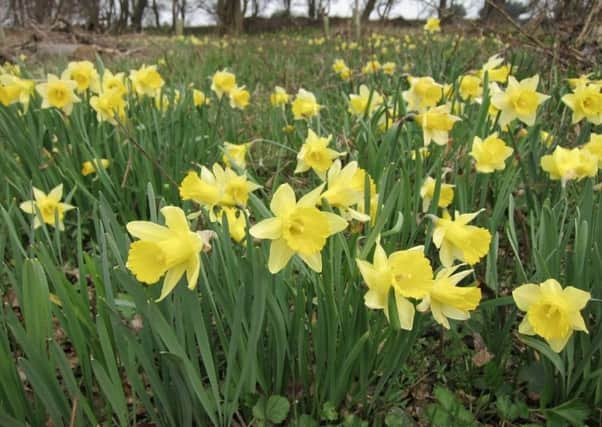Country Diary: Sunshine will slowly release winter's icy grip


Earth stood hard as iron, Water like a stone.
Yes, it may feel like we’re approaching Christmas rather than Easter, but nature will have her way. Thankfully technology cannot control the seasons. Calendars may indicate it’s now officially spring, but nature takes her time. Global warming? Just think about it!
Michael was recently re-admitted to hospital – the third time since early December, but hopefully one day his problems will be solved. Meanwhile, it’s thanks to all the brilliant doctors, nurses and staff for their constant care and devotion. Whatever their workload, they always wear a cheerful smile.
Advertisement
Hide AdAdvertisement
Hide AdBattling against the elements, life has to go on, not only for ourselves, but for wildlife too. When spells of sunshine released the grip of winter’s icy fingers, crocuses and snowdrops which had been buried beneath a blanket of snow, extended delicate petals to greet the day once more, completely unharmed.
However, birds and animals seeking food welcome man’s assistance in sustaining life.
One little creature, more related to crabs, are land-living ‘insects’ we all know as woodlice! They still require a fairly moist environment, but on the few days we’ve had warmer spells, I’ve discovered odd ones around. They venture forth only at night to browse on decaying vegetation and on algae growing on tree trunks and walls. They sometimes nibble young seedlings, especially in greenhouses, so gardeners – watch out!
All species have seven pairs of walking legs, not the six pairs of true insects. These are largely concealed under the broad plates of the thorax.
Advertisement
Hide AdAdvertisement
Hide AdNow it’s daffodil time, and a joy to see them once more. They may be a week later than most years, but we must wait even longer for the truly wild ones to bloom. Our favourite sites are Farndale, north of Kirkbymoorside, and Sycarham Wood at Cloughton.
It was once common in the wild, but since the 16th century the clearance of woodland, improvement of pasture, and increased soil drainage have all combined to reduce wild daffodils’ numbers.
Nowadays, people are forbidden to dig up bulbs for their gardens too.
The monks of Rievaulx may have planted them during their travels, or Nicholas Postgate, the Egton Bridge martyr may have introduced them to Farndale. They love damp woods and grasslands. Wait until almost mid-April to admire wild daffodils in their full glory, and remember not to pick or uproot them.
Advertisement
Hide AdAdvertisement
Hide AdThe daffy season is a short one, between March and May, and visitors throng to gaze in awe at the garden display along the banks of Farndale’s River Dove. Go early morning or evening to avoid the crowds.
A kind neighbour gave us red carnations when Michael was first hospitalised. Kept in our coldest room they’re still fresh after 15 weeks. We treasure them!